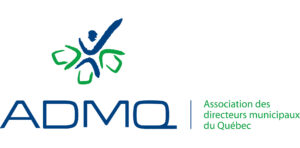Director General, Clerk, and Treasurer
Municipalities, RCMs, and intermunicipal management boards
Learn about the roles of the director general, clerk, and treasurer
*Video available in French only
DIRECTOR GENERAL
The director general is the head officer of the municipality. They work under the authority of the municipal council and are responsible for the administration of the municipality. To that end, they plan, organize, direct, and supervise the municipality’s activities. They also facilitate communication between the council and other municipal officers and employees, as well as citizens.
As for the director general of an RCM or intermunicipal management board, they report to the council of mayors or the board of directors composed of elected officials.
Their main responsibilities are dictated by the Cities and Towns Act (CTA) or the Municipal Code (MC), depending on the legal framework of the organization they work for.
Municipalities may be governed by the CTA or the MC, while RCMs are governed only by the MC and intermunicipal management boards can be governed by either law depending on their constitution.
The role of the director general has a number of distinct features that need to be taken into account:
– The DG works closely with elected officials, but is not one.
– The DG collaborates with a team of employees, but is their boss.
Depending on the structure of the organization they work for, or whether they are governed by the CTA or the MC, the director general may find themselves wearing several hats, including those of clerk and treasurer. This means they need to be versatile, able to acquire knowledge in a variety of fields, and creative in the solutions they propose.

In addition to the main duties, in many cases (especially in small municipalities of 5,000 inhabitants or fewer) they find themselves with numerous other responsibilities, including:
– contract management
– human resources
– funding applications
– communications
– access to information and the protection of personal information
– returning officer duties (for municipalities and sometimes RCMs)
– coordination of emergency measures (for municipalities)
These responsibilities require a wide range of knowledge in both the administrative and legal fields. They also require the utmost professionalism and respect for the council’s decisions.
Legal framework
The director general and clerk-treasurer operates within a vast and complex legislative framework. In addition to the many regulations, there are over 42 laws across multiple sectors that govern the activities of the municipal world. Furthermore, regulatory amendments and new laws bring multiple changes and additions to integrate every year. Even so, the director general needs to guide and advise the council in its decision-making.
To be a director general in a municipal organization is to be a conductor of an orchestra, requiring expertise in several fields:

A poorly understood position
The position of director general for a municipal body is not well known. Both complex and varied, it allows people to put their skills to work for the public good, serving citizens and the community. It also helps advance projects that allow the community to grow. In other words, working and taking on responsibilities in the municipal sphere offers the ability to make a concrete difference for residents.
Directors general and clerk-treasurers can have backgrounds in many different fields, including:
– administration
– law
– urban planning
– accounting
– human resources
– communications
– to name a few.
Outside of custom programs, like the Association des directeurs municipaux du Québec’s (ADMQ) online Directeur municipal agréé (Certified Municipal Manager) training program for DMA certification or its ABC/DG introductory course, there is no specific program of study leading to the position.
Learning to succeed in the municipal world means getting to know the environment while adapting to the new directions and priorities of the citizens’ representatives, the elected officials, every four years. This makes soft skills an undeniable asset for a director general!
It’s important to know how to navigate a complex, ever-changing field. After all, needs are numerous and change over time. It’s critical for a director general to be able to deal with this reality, and that calls for innovation.
CLERK
The clerk plays an essential role in making sure municipal council sittings run smoothly. They need to collect information, help develop agendas for meetings, and prepare documentation to support decision-making. They also have a major responsibility in preparing and publishing the municipal public notices required by law, and are responsible for drafting by-laws. All by-laws are recorded in the minute book of the council and in a special book that constitutes the municipal book of by-laws.
Very often, the clerk is also responsible for drafting the municipality’s contracts and legal documents. Finally, they are the custodian of the municipal archives, as well as all books, registers, plans, maps, and other documents and papers.

TREASURER
The treasurer is in charge of the municipality’s financial management. Even if the director general is not the treasurer, they still need to be able to understand municipal finances, especially since they are held responsible for them under numerous legal provisions.
Understanding financial management means having an excellent knowledge and mastery of financing methods, fund management, taxation scenarios, the property assessment roll, and general good management of the municipality’s money.
More specifically, the treasurer makes sure the bookkeeping is done properly. By law, they are the one who collects amounts owed to the municipality like taxes, transfer duties, and subsidies. They also pay any amounts the municipality owes, as long as they are authorized to do so.
This implies meticulous bookkeeping to make sure the different financial statements are accurate and the information is easy to find. Finally, the treasurer needs to prepare a multitude of documents for the external auditor as part of the annual audit.
